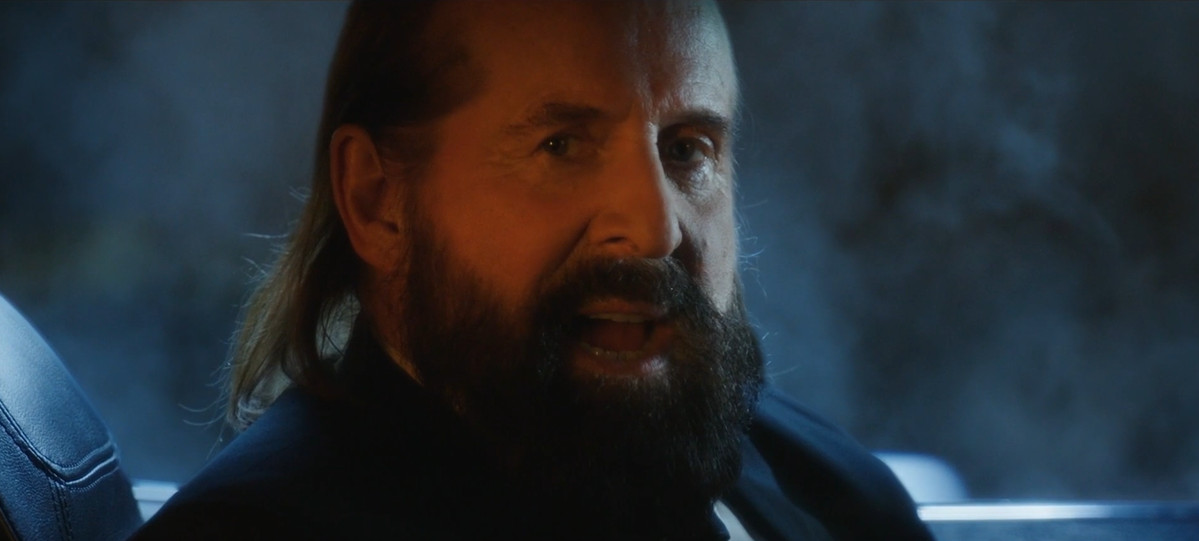How to Make Gravy: A Soupy Christmas Drama
This Christmas season, a unique film adaptation arrives, born not from a script but from the lyrics of Paul Kelly's beloved ballad, "How to Make Gravy." The movie, directed by Nick Waterman, takes viewers on a journey through the poignant narrative of Joe, a man imprisoned far from his family during their first Christmas without his mother. While based on the song, the film expands on the emotional story, using Joe's gravy recipe as a potent symbol of love and home. The movie isn't just about gravy though; it explores themes of family, redemption, and toxic masculinity.
A Prison Drama with a Heart of Gravy
Much of the film unfolds within prison walls, a fitting backdrop for Joe's heartfelt letters home. However, the film transcends its prison setting, avoiding cliché and instead focusing on Joe's emotional struggle. This isn't just a hard luck story; it delves into the complexities of a decent man facing difficult choices, and the consequences of those choices. The film doesn't shy away from the harsher realities of prison life, punctuated by moments of unexpected warmth, a testament to the power of human connection. While some scenes veer into sentimentality, the overall impact remains remarkably moving and thought-provoking.
Joe's Redemption Arc
Joe, played by Daniel Henshall, is portrayed as a good man who made a mistake, but whether that mistake was fully justified remains a point of contention. His actions leading to imprisonment were sparked by a violent altercation involving his brother-in-law, but the film's narrative obscures the specifics, creating a space for interpretation. This choice allows viewers to empathize with Joe's situation while also critically examining his circumstances.
The Magic of Gravy (and Great Performances)
The film doesn't shy away from the central metaphor of gravy. The film presents it as an elixir, a powerful symbol of family togetherness and love, a catalyst for connection. A scene shows Joe sharing his gravy recipe in the prison kitchen, bridging divides among the inmates and showing its power to unite and heal. In a film full of stellar performances, Hugo Weaving's Noel steals the show as a wise, fatherly figure running a men's group in the prison.
Stellar Cast and Authentic Performances
Along with Henshall's poignant portrayal of Joe, the film boasts a strong ensemble cast. Agathe Rousselle, known for her intense work in Titane, delivers a powerful performance as Rita, Joe's wife, showcasing her resilience and determination in the face of adversity. Brenton Thwaites’ role as Joe’s brother adds another layer of complexity to the family dynamics. Each performance resonates with truth and authenticity, adding depth to the narrative.
A Christmas Story for Modern Times: How to Make Gravy's Australian Identity
The film excels in its portrayal of Australian culture and family dynamics. The imagery showcases quintessentially Australian settings, creating a tangible sense of place. The cinematography enhances the film's emotional impact, capturing the beauty of the Queensland landscape and the intimacy of family gatherings. The film's soundtrack, featuring a blend of iconic Australian musicians and original scores, further immerses viewers in the world that it depicts, making the Australian setting and identity feel both authentic and vibrant. The film’s depiction of a working-class family also provides a stark contrast to the often idealized depictions seen in many Christmas movies, making it feel more grounded and relatable to those who identify with that experience.
The film's treatment of masculinity is particularly noteworthy, showcasing the complexities and struggles that men often face in expressing emotion and seeking support. The movie's willingness to portray these themes with honesty and nuance makes it a particularly relevant and moving film for modern audiences.
This film transcends its origins as a song adaptation and becomes a powerful story of family, love, and redemption, set against the backdrop of an Australian Christmas. While it might occasionally dip into sentimentalism, the overall strength of its performances and themes make "How to Make Gravy" a heartwarming and engaging experience. The film isn't just a watch; it’s a chance to reflect on family, forgiveness, and the seemingly magical power of a simple, delicious gravy recipe.
How to Make Gravy is a must-watch this Christmas season, and its honest portrayal of Australian culture will likely resonate for many years to come. It’s a film that will stay with you long after the credits roll, prompting conversations about family, masculinity, and the simple yet profound power of connection. The film's impact lies not just in its beautiful cinematography or well-chosen soundtrack, but in its ability to evoke genuine emotion and self-reflection.


















